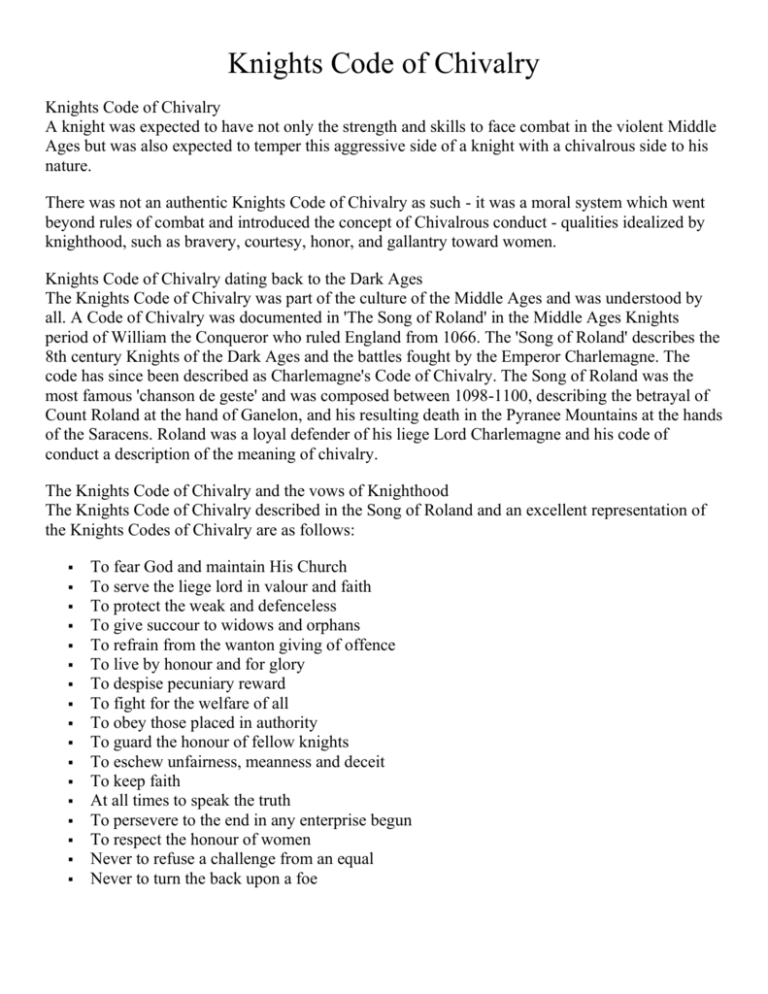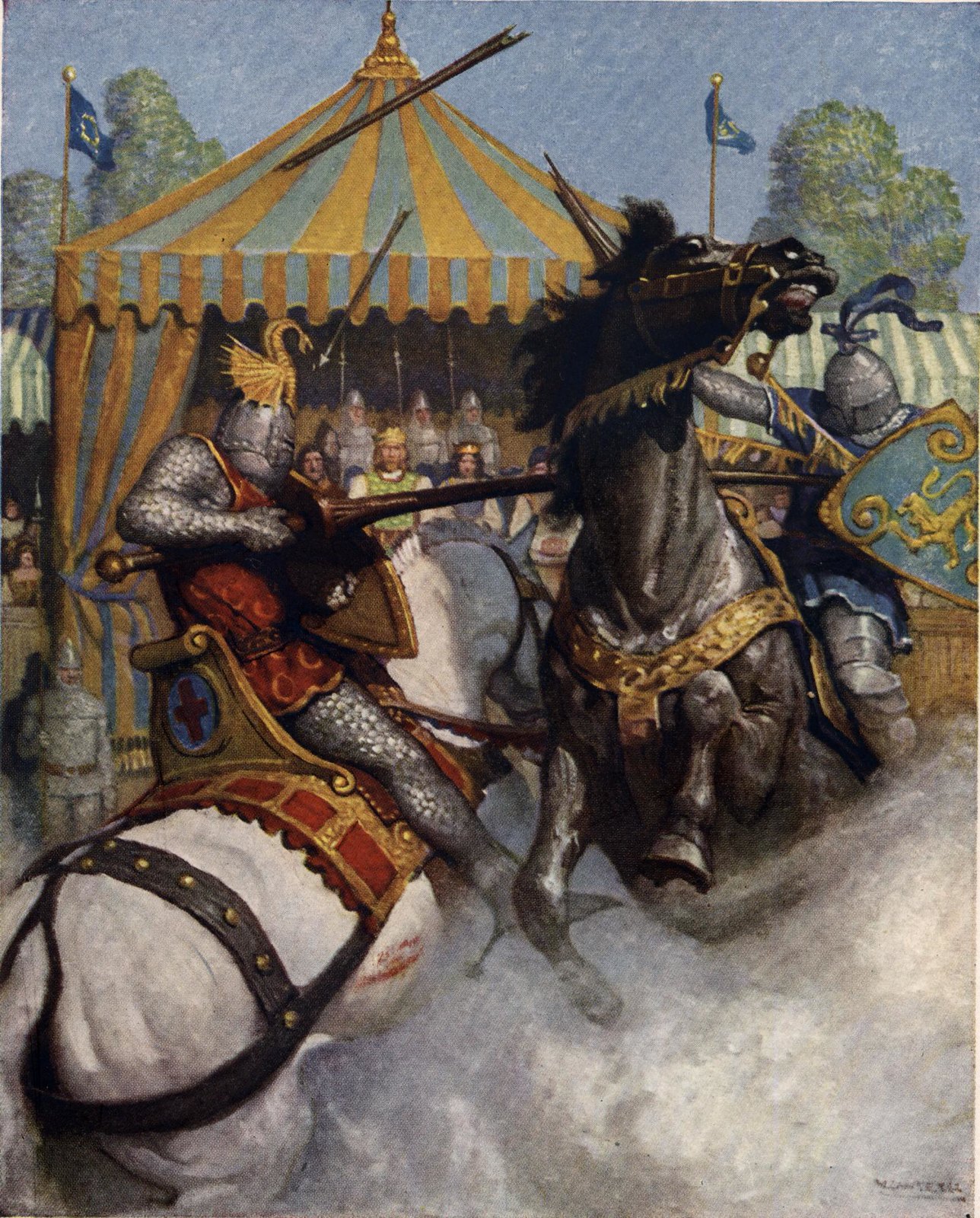

This poem likely inspired many knights and storytellers alike to value the courageous example set by their forebears.In medieval Europe, a code of ethics known as chivalry developed which included rules and expectations that the nobility would, at all times, behave in a certain manner. The anonymous author of this poem praises the valor of the Franks who fought for "Sweet France" and for God. Roland dies selflessly in battle and is remembered as a hero in his country forever. Instead he and his men face the enemy against all odds instead of risking the lives of Charlemagne and his men. Before the final battle he knows that by simply blowing his horn, he could alert Charlemagne and he and his army would come to save him.

Roland is one of the main characters in this poem who bravely dies on the battlefield in service to God and his country. Roland leads the rear guard and is ambushed as they are crossing the Pyrenees Mountains after he is betrayed by his stepfather. It details Charlemagne's defeat of the final Saracen army during his expedition into Spain which began in 778 AD. One of the oldest surviving written examples of chivalrous duty is recorded in the Old French epic poem, The Song of Roland. These are lessons that should not be forgotten. As such, the Christian faith became an integral part of the knights' code of ethics from the start.ĭuring a time of general disorder in Europe, a knight's moral code along with the Christian faith were some of the few things that emerged from the Dark Ages to hold societies together and present a clear view for a culture's future. These kings strongly valued religious fervor among their lieutenants. The most notable of these conversions being Clovis I, king of the Franks, in 496, and the influential King Ethelbert of Kent in 597. The missionaries enjoyed great success in winning local rulers over to the faith. The Church sent missionaries into all corners of the continent to convert nobles and their subjects to the Christian faith. One remnant of the Roman Empire, the Catholic Church, sought to unify Europe both politically as well as spiritually. There was one more major influence on the conduct of knights during this time in Western Europe. Many knights eventually came to be rich and powerful in their own right, mostly by virtue of service to their lords as well as prizes won in tournaments with their peers. The word comes from the French word Chevalarie, which literally means "what the horse soldiers did."Ĭhivalry would govern a knight's actions on and off of the battlefield. By the end of the 12 th century, knights in armor had come to exemplify a sense of duty and honor and strict ethics known as Chivalry. Their strong morals, military traditions, and strict code of behavior soon became the stuff of legend. In time these men came to be known as knights. These men were equipped at their king's expense with armor and weapons and also wore the crest of the king they served. In these dangerous times, kings and barons strengthened their households by hiring bands of soldiers sworn to loyalty only to them. Kings as a rule had to be constantly on guard for any conceivable threat to their position of power. Dukes, barons, and other nobles took advantage of the general chaos of this time in history to strengthen themselves by any means they could. Duty and honor were foremost among the personality traits that were valued and admired.ĭuring these times, it took a great deal of cunning and self preservation measures to survive a world of shifting loyalties. Chivalry generally refers to a code of ethics adhered to by knights during the Dark and Middle Ages in Europe.


 0 kommentar(er)
0 kommentar(er)
